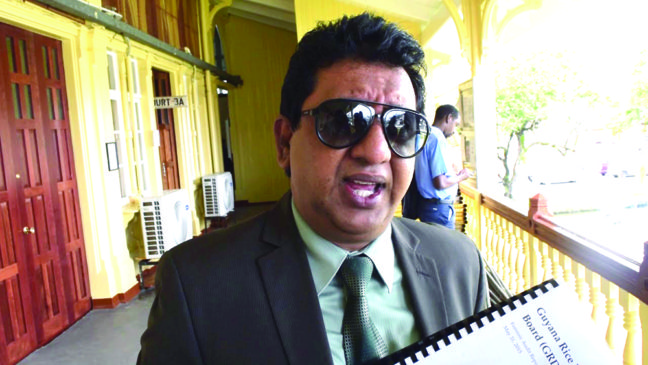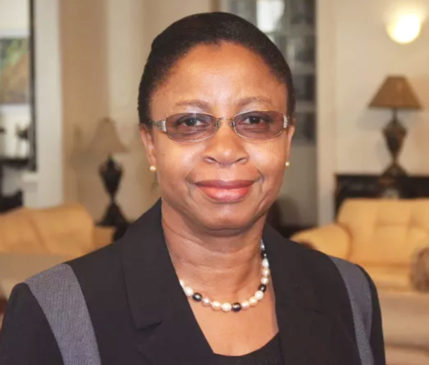

A week after his order seeking Cabinet’s resignation was refused by the High Court, former Attorney General (AG) Anil Nandlall has filed a notice that he is appealing against the ruling on the grounds that Chief Justice (CJ) (acting) Roxane George made a mistake in her ruling.
According to the Notice of Appeal seen by this publication, Nandlall is seeking an order from the Court of Appeal compelling Cabinet and the President to resign, as a consequence of them being defeated by a No-Confidence vote.
Apart from asking for a mandatory order to force the Government to give effect to such a ruling, Nandlall is also asking for a conservatory order restraining Cabinet (which stands resigned following the Caribbean Court of Justice ruling on June 21, 2019), including the President, from meeting.
Nandlall also requested an order reversing Justice George’s order dismissing his claim and awarding costs of G$500,000 to the respondent, as well as any other orders the Court deems fit to grant.
According to the former AG in his Notice of Appeal, the CJ “erred in law in failing to properly give a true interpretation to and give effect to the clear and unambiguous provisions of Article 106 (6) of the Constitution, commanding, mandating and requiring the resignation of the Cabinet, including the President, when the Government is defeated by a vote of majority of all the elected members of the National Assembly”.
Among Nandlall’s other contentions is that Justice George failed to properly interpret the ruling of the Caribbean Court of Justice (CCJ) in the consolidated appeals related to the No Confidence vote. According to Nandlall, she also failed to properly apply the Doctrine of Stare decisis or the principle that treats with precedents set by higher courts.
The ruling
In her ruling last week, Justice George had noted that a first instance court such as the High Court cannot contradict the higher court’s ruling. She pointed out that the CCJ had said that notwithstanding the Cabinet’s resignation, it still continued in office as a caretaker government.
She said that both Nandlall and Attorney General Basil Williams referenced this passage in their submissions to the Court, though she acknowledged that such references were made in different contexts.
“In my view… the CCJ did make a pronouncement on the resignation of the President and Cabinet. Given the language of the CCJ… the effect of the (No Confidence Motion) was the immediate resignation of the Cabinet, but the Court clearly stated that notwithstanding this, the tenure in office of Cabinet (and) President… is on a different footing”.
“Given this pronouncement, there could not have been… any requirement for a mandatory order compelling the Cabinet, including the President, to give effect to the resignation of the Cabinet, including the President, which occurred by operation of law consequent on the NCM,” Justice George said in her ruling.
Besides striking out Nandlall’s application, Justice George had also ordered the payment of G$500,000 in costs to the respondent. In his comments after the ruling, Nandlall had expressed shock at the Court’s unwillingness to grant the order. He noted that the Constitution of Guyana takes precedence over any doctrine on the hierarchy of the courts.
“This is indeed a shocking ruling. Every Guyanese, by now, must be aware of the clear language of Article 106 (6) of the Constitution… mandatory, clear, unambiguous language. And here it is, we have approached the court there is a Cabinet refusing to resign and there is a constitutional court telling us that because the CCJ did not make that order, then forever we are in perpetual error”.
“In other words, the doctrine of precedent and the doctrine of stare decisis are now superior to the Constitution of the country. The Constitution is the supreme law, not no ordinary principle of Stare Decisis. Those are basic, low-ranked principles. The Constitution is the supreme law and that, unfortunately, is not being upheld by the court. So this decision must be appealed”.
According to Attorney General Basil Williams, however, the decision was in keeping with the need to preserve legal precedent. He was of the view that the decision was the right one, since the CCJ referenced the matter in its ruling.



